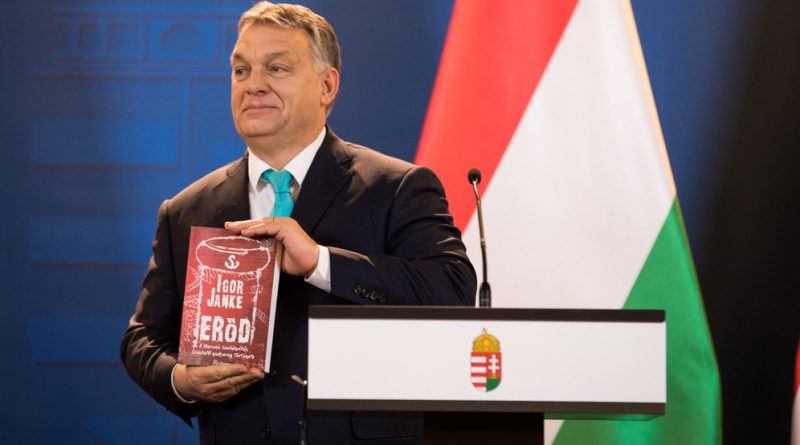Viktor Orban Wins Fourth Term as Hungarian PM
Alejandro Ramirez
Staff Writer
On April 6, Viktor Orban, already serving out his third consecutive term, won the Hungarian parliamentary election in a landslide, a victory that will put Hungary on uncertain footing with the EU and other allies, Reuters reports. The mercurial leader of Hungary’s center-right populist party Fidesz, Orban has previously drawn the ire of European heads of state and EU commissioners alike for his abrasive rhetoric on gender and immigration issues. However, the relative stability of Hungary’s economy during the COVID-19 pandemic has helped coalesce his supporters, who turned out to re-elect Orban with an impressive 54 percent majority. The New York Times adds that like many populist leaders, Orban’s supporters live mainly in the rural, working-class areas of Hungary, with support waning in cities and among those with higher education.
NBC News explains that this election was unique for the solidarity shared among opposition parties. Six parties from across the ideological spectrum were able to unify under one nominee, Peter Márki-Zay, who ran on a moderate conservative platform that presented him as a less radical, more stable option to Orban. However, a combination of tight control of the media’s coverage of opposition parties and a message of isolationism in the face of the Ukraine War was enough for Orban to clinch his fourth electoral victory. Arguing that the opposition would embroil Hungary in a war against Russia motivated by EU interests if elected, Orban was able to weaponize the want for security among Hungarian citizens to secure his victory.
This neutral approach to the relationship between Russia and Hungary has posed questions about the nations’ formerly close relationship – the Moscow Times reports that Hungary signed a 15-year contract for natural gas from Russia last November – and many members of Orban’s party are seeking to distance themselves from Russia, due to the historical grievances between the two countries. But Orban has stood fast on his neutral stance towards Putin, with Reuters reporting him going as far as to offer to pay for Russian natural gas in rubles, a break from the unified front the EU seeks to build in its sanctions against Putin.
Orban’s government faces other new challenges as well: the war in Ukraine is expected to slow down Hungary’s economic growth, and Orban’s refusal to stand in solidarity with his EU counterparts in condemning Putin’s invasion of Ukraine has further ostracized him from his neighbors. Amongst EU leadership, the actions Orban’s government has taken in defiance of EU regulations on gender and immigration have soured the relationship between Hungary and the European Union Commission, leading to so-called “Article 7” actions to be taken against Hungary. This refers to Article 7 of the Treaty of the European Union, which allows the EU to suspend certain rights of states that violate its democratic principles. Reuters further adds that recently, a crucial 7.2 billion Euro aid package for Hungary, designed to ease the economic burden of the COVID-19 pandemic, was blocked by the EU Commission in protest against Orban’s increasingly defiant shirking of EU rules against discrimination. The Guardian reports that this was largely in response to violations from Orban’s “anti-LGBT” referendum.
The OSCE reports that, while the elections themselves were fair and well-organized, they were unacceptably marred by pervasive media bias in favor of the ruling party. The Washington Post adds that this, combined with doubts about campaign funding discrepancies, provides more justification for the EU’s impending funding freeze, should the Orban government fail to answer the EU’s concerns.




